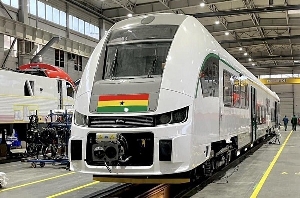Business News of Friday, 16 April 2021
Source: businessghana.com
Support women-led businesses to ensure success of AfCFTA – Kosi Yankey
Mrs Kosi Yankey Ayeh, the Chief Executive Officer of the Ghana Enterprises Agency, formerly the National Board for Small Scale Industries, has stressed the need to empower women-led businesses as a means to ensure the success of the Africa Continental Free Trade Area, AfCFTA.
said the contribution of women to trade was much lesser than expected because of non-tariff barriers that impinged heavily on the trading activities of women and women-owned enterprises.
She made the comments during a recent multi-stakeholder engagement meeting held earlier this week together with the UNDP and regional bloc, ECOWAS.
“The AfCFTA is a major tool to transform the African economy and this transformation could be accelerated if women and gender issues are made central and incorporated in national AfCFTA strategy documents for implementation. It is our collective desire to leave no one behind.
"I wish to use this opportunity to appeal to the private sector and its development partners to support the great efforts of our women entrepreneurs. We need to support them to realize their full AfCFTA through enactment of laws and regulation,” she said.
The African Continental Free Trade Area, which commenced on January 1, 2021, consolidates a market of 1.2 billion people and a combined GDP of $2.5 trillion.
Because of the agreement, Africa’s manufacturing output is expected to double to $1 trillion, creating 14 million jobs by 2025.
Being a game-changer, there is no doubt that the continent-wide pact is pivotal to the economic transformation of Africa.
However, a plethora of Non-Tariff Barriers has affected the smooth participation of women in trade, and the potential for inclusive growth.
According to a recent study by the United Nations Food and Agriculture Organization in 2017, 70 per cent of the informal traders in the Southern African Development Community (SADC) region are women.
In West and Central Africa, informal cross-border trade among women represents more than 60% and generates about 40 to 60% of the Gross Domestic Product (GDP) of the countries concerned.













